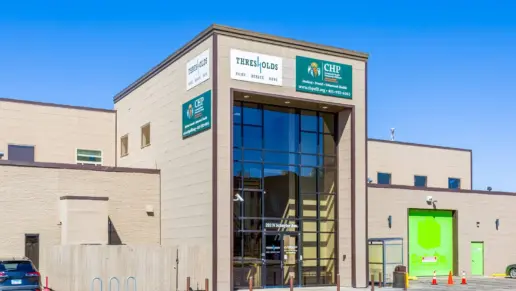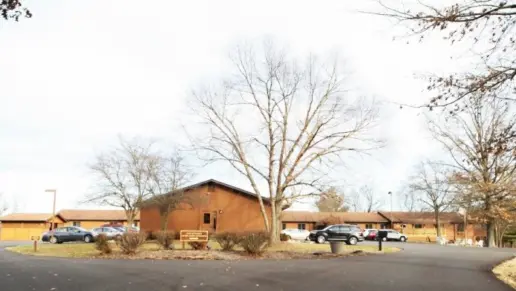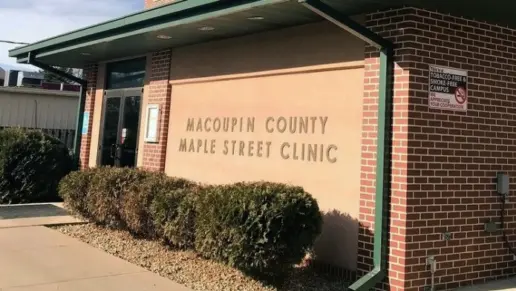About Linden Oaks Medical Group – Woodridge
Linden Oaks Medical Group is a medical hospital located in Woodridge, Illinois. They treat people for substance use disorder (SUD) and alcohol use disorder as part of their behavioral health services. They also treat people who have mental health issues and addiction issues at the same time. Here, they specialize in inpatient care and also offer partial hospitalization (PHP) and intensive outpatient (IOP) programs.
They offer both inpatient and outpatient services here. They treat people from the age of 11 and up. They offer detox services. A physician will monitor you as you withdraw from drugs. They can provide you with medically assisted treatment (MAT) if you need it.
You will have an intake assessment to determine the level of care you need. The length of your treatment program will depend on your personal needs. All clients are treated with group therapy sessions and individual therapy sessions.
Psychotherapists use a variety of different treatment methods for SUD treatment. You’re likely to be treated with some form of behavioral therapy.
Behavioral methods encourage you to change your thought patterns to change behaviors that are hurting you. In some cases, they offer coping mechanisms for dealing with stressful situations.
Most mental health professionals consider group therapy to be the most important part of drug rehab. It is critical for people to be able to share their emotions and experiences with other people who have similar struggles.
If you are unable to go to inpatient therapy then you may be eligible for their PHP services. You will attend therapy all day long and go home at night.
If you do not need such a high level of care then they have an IOP in which you would come in several times a week for treatment. They have regular counseling sessions for people who only need to come in once or twice a week.
Gallery
Accepted Insurance









Other Forms of Payment
Private insurance refers to any kind of healthcare coverage that isn't from the state or federal government. This includes individual and family plans offered by an employer or purchased from the Insurance Marketplace. Every plan will have different requirements and out of pocket costs so be sure to get the full details before you start treatment.
Self-pay involves paying for treatment out of your own pocket. You can use savings or credit, get a personal loan, or receive help from family and friends to fund your treatment. If you don't have insurance or your insurance plan doesn't cover a specific program, self-pay can help ensure you still get the care you need.
Financial aid can take many forms. Centers may have grants or scholarships available to clients who meet eligibility requirements. Programs that receive SAMHSA grants may have financial aid available for those who need treatment as well. Grants and scholarships can help you pai for treatment without having to repay.
Sliding scale payments are based on a client's income and family size. The goal is to make treatment affordable to everyone. By taking these factors into account, addiction recovery care providers help ensure that your treatment does not become a financial burden to you or your family, eliminating one barrier to care.
Medicare is a federal program that provides health insurance for those 65 and older. It also serves people under 65 with chronic and disabling health challenges. To use Medicare for addiction treatment you need to find a program that accepts Medicare and is in network with your plan. Out of pocket costs and preauthorization requirements vary, so always check with your provider.
Military members, veterans, and eligible dependents have access to specific insurance programs that help them get the care they need. TRICARE and VA insurance can help you access low cost or no cost addiction and mental health treatment. Programs that accept military insurance often have targeted treatment focused on the unique challenges military members, veterans, and their families face.
Medicaid is a state based program that helps lower-income individuals and families pay for healthcare. Medicaid covers addiction treatment so those enrolled can use their coverage to pay for rehab. When a program accepts Medicaid the client often pays very little or nothing out of their own pocket.
Addiction Treatments
Levels of Care
Treatments
Specialized dual-diagnosis rehabs in Illinois have the expertise to treat co-occurring mental health and substance abuse issues. Offered on an inpatient and outpatient basis, these comprehensive treatment programs include medical and psychological support, experiential therapies, counseling, and evidence-based therapeutic interventions aimed at addressing substance use disorders and improving mental health.
Programs


Clinical Services
If you engage in cognitive behavioral therapy in Illinois, your therapist will work with you to change your thinking patterns. You'll learn how to recognize faulty thinking and develop skills to deal with stress without using substances.
Dialectical Behavior Therapy (DBT) is a modified form of Cognitive Behavioral Therapy (CBT), a treatment designed to help people understand and ultimately affect the relationship between their thoughts, feelings, and behaviors. DBT is often used for individuals who struggle with self-harm behaviors, such as self-mutilation (cutting) and suicidal thoughts, urges, or attempts. It has been proven clinically effective for those who struggle with out-of-control emotions and mental health illnesses like Borderline Personality Disorder.
Group therapy is any therapeutic work that happens in a group (not one-on-one). There are a number of different group therapy modalities, including support groups, experiential therapy, psycho-education, and more. Group therapy involves treatment as well as processing interaction between group members.
The therapists of Linden Oaks Medical Group provide traditional outpatient therapy. Patients usually meet once or twice a week for talk therapy with a counselor. The frequency of your sessions may vary based on your therapist’s and/or psychiatrist’s recommendations. Sessions last 45 minutes to an hour.
The Linden Oaks crisis response team provides immediate and practical resources for those impacted by trauma and serious loss. By offering assessments, information, referrals, education and support during a time of need, the team delivers frontline mental health care with compassion, dignity and excellence. The Linden Oaks crisis response team includes approximately 20 members. Members represent various disciplines, including counseling, psychology, social work, education, nursing and other related areas.
Research clearly demonstrates that recovery is far more successful and sustainable when loved ones like family members participate in rehab and substance abuse treatment. Genetic factors may be at play when it comes to drug and alcohol addiction, as well as mental health issues. Family dynamics often play a critical role in addiction triggers, and if properly educated, family members can be a strong source of support when it comes to rehabilitation.
In addition to intensive outpatient programs (half day) and partial hospitalization programs (full day), they also offer life skills education. Their life skills education is designed to provide vocational training and teach you healthy coping and problem-solving skills.
Without nutritional balance, you can't achieve overall health. Nutrition therapy restores this balance by providing healthy meals and teaching you how to choose foods that support recovery. It is an important part of most rehab programs in Illinois.
Recreational therapy in an addiction treatment program in Idaho helps you rediscover the joy and build healthy habits you can continue as you reenter the community. Activities can include gardening, yoga, and group games that all promote relaxation, improve mood, and encourage interaction and community building. These factors are crucial for sustaining long term recovery.
A therapist who specializes in creative arts therapy in Illinois helps you communicate your feelings through expressive activities such as painting, music, or acting. Skill in the art form is not required to benefit from this type of therapy.
Therapists use everyday activities (occupations) to help people recovering from illness, injury and/or addiction regain and improve the skills they need to thrive in their daily lives. Groups focus on career-related topics that include: identifying interests and job skills, building a resume, preparing for job interviews, finding a job and exploring careers, and maintaining employment.
Amenities
-
Private Setting
Accreditations

The Joint Commission, formerly known as JCAHO, is a nonprofit organization that accredits rehab organizations and programs. Founded in 1951, the Joint Commision's mission is to improve the quality of patient care and demonstrating the quality of patient care.
Joint Commission Accreditation: Yes
Contact Information
3329 75th St,
Woodridge, IL 60517















